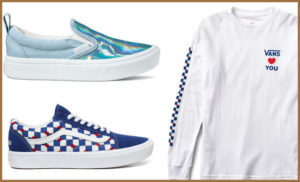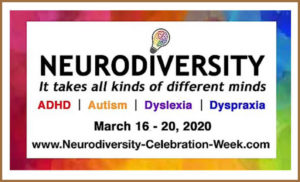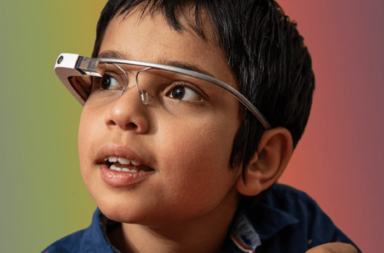Every month I usually cap off the days that were, with an autism news roundup; in which I discuss the 5 top autism discoveries, announcements and all-around achievements of the past few weeks. March, however, was anything but ‘usual’. Instead, when it came to finding the autism community’s greatest moments in March, things got a little tricky as, on many of the news sites and medical journals where I get this gossip, I found that many had shifted their somewhat niche subjects to focus on the big topic that is on everyone’s minds (and, no, I’m not referring to the Tiger King).
Nevertheless, whilst this has turned today’s roundup into more of a ‘things you might have missed’ than a countdown of achievements, this should only you give you more reason to read on as, at best, it will make you say ‘Wow! I didn’t know that happened’ and, at worst, you will think ‘Finally, a piece of news that isn’t about covi…’
[As always, links to the full stories can be accessed by clicking on the red titles and the bold headings. Additionally, this article contains spoilers for Everythings Gonna Be Alright, so read at your own peril]
The Top 5 Autism News Pieces for March 2020:
5. A Unique Autism Collaboration: Sensory-Friendly Vans

Whilst the phrase ‘sensory-friendly van’ might initially sound like something the Child Catcher uses to abduct autistic children, today’s first piece of new is anything but sinister. Instead, when the skater apparel company, Vans, announced their new autism awareness collection this month, they were referring to a 13 piece capsule, which includes t-shirts (both long sleeve and short) as well as slips on and their signature ‘old skool’ trainers.
The collection isn’t simply a publicity stunt though, as much care has been taken to ensure that all items featured are up to the typical Vans’ standard, with designs in cool calmed colour palettes, which are easy to wear and have been made ‘ultra-comfortable’ (although why they don’t make every item they sell ‘ultra-comfortable’ is beyond me).
The range isn’t without its faults though, as there seem to be no items aimed specifically at females and, furthermore, other than two pairs of trainers (featuring sizes 2-12), there are no designs for adults (which is a shame because I would wear the hell out of that long-sleeve tee).
Nevertheless, it’s hard to stay mad when a percentage of the sales will be donated to the autism skate charity A-Skate. However, if this range returns (which I really hope it does), then I wish that Vans can ‘skate’ around these shortcomings.
4. Neurodiversity Celebration Week

How do you follow up on something truly spectacular? It’s a daunting task and, in the past, it’s why so many one-hit wonders disappear after their landmark song (not to mention why my parents never had another child after me). However, in March, this question was once again raised when, in the days leading up to the 16th March, the world began preparations for its 2nd Neurodiversity Celebration Week.
Now, for those who don’t know what Neurodiversity Celebration Week is then, firstly, you might want to check this article out but, if you’ve not got the time for it, then the basic gist is that it is now an annual event, forged from the ingenious mind of Siena Castellon and, for those who haven’t cracked the code, it was designed to promote positive awareness about the many neurodiversities that walk our planet e.g.:
- ADHD
- Autism
- Dyslexia
- Dyspraxia
With over 340 schools taking part in 2019, this year certainly had a lot to live up to. However, even with the cards stacked against it, 2020 produced some astounding results and raised the number of schools to a staggering 730 with a whopping 500,000 students taking part!
As such, the question which now remains is: how will 2021 top this figure even further? A question which you can keep up to date with by following the Neurodiversity Celebration Week website or its founder on her main site or on her Twitter account.
3. Autism Research Grinds to a Halt

I said at the start of this roundup that, this week, there would be no mention of a certain virus. Nevertheless, you may currently be wondering where all my academic updates have gone this month and the answer is, erm, yeah….
So, due to reason which I’m sure we are all aware of, much autism research has ground to a halt in the last few weeks, as thousands of universities and colleges have closed their doors and sent staff home. In most cases, these centres have stated that they will reopen in 2 weeks (although while I lack the know-how of most of these geniuses, even I know that 2 weeks is a bit ambitious).
Of course, while I would be a fool to speculate how long this will actually last, many facilities are now considering ways in which best to protect ongoing studies, to avoid years of research going to waste. But, as many countries become more stringent in their lockdown measures, it appears that some institutes are entering into a cat and mouse game; where for every step closer they get to their work, they are pushed another step back.
2. U.S. Autism Figures Rise

Coming hot off February’s announcement, that 20% of U.S. caregivers are in bad health (a report which, given the current climate, now seems astronomically out of date), last month, the ever cheerfully titled Morbidity and Mortality Weekly returned with new findings which suggest that autism figures in the U.S. have risen from 1 in 59 to 1 in 54 (how this is related to morbidity or mortality I don’t know!).
This research comes after analysing the educational records of 8-year-olds throughout America and, in addition to yet again demonstrating academic ignorance for older autists, it also found that a gender breakdown of autism puts boys as 1 in 37 and girls as 1 in 151.
Perhaps most interesting though (and something which is oddly buried in this report) is the suggestion that, for the first time, black and white children have the same prevalence when it comes to the diagnosis and, whilst this accurately shows that autism does not discriminate by race, it equally shows that more must be done to diagnose Hispanic children (who were reported as having the lowest diagnosis of all).
1. ‘Everything’s Gonna be Okay’ Breaks Stereotypes

In a 2017 Journal of Autism and Developmental Disorders, it was found that, in people with autism, 22% of women and 8% of men are LGBT. Comparatively, this is much higher than the general population (of which LGBT members roughly make up 2%). So, why is it that, throughout all of our representation on the small screen, autistic characters are almost entirely portrayed as straight?
This is obviously a problem which we won’t be able to correct right away. However, as of last month, the autism community finally passed the first hurdle, when it came to autistic LGBT representation when, in an episode of the new autism centric show Everythings Gonna be Okay, its autistic lead, Matilda (who is played by the autistic actor Kayla Cromer) had a gay relationship.
In full disclosure, this is not something I myself have watched yet (although this is due to availability more than anything else). However, in spite of this, I would like to commend the show for finally showing the diversity within diversity (which our community has long deserved).
Of course, until I get round to watching the episode I don’t want to comment further but, whether a stroke of genius or a missed shot at greatness, it continues to prove that if there’s one thing 2020 is good for, it’s autism shows.
Carry on the Conversation:
What brands would you like to see create a sensory-friendly range like Vans? Let me know in the comments below and, for a further explanation of sensory processing disorders in autistic people click here to check out my article: Sensory Processing Disorder: Finding the Perfect Sensory Toys for Autism
As always, I can also be found on Twitter @AutismRevised and via my email: AutisticandUnapologetic@gmail.com.
If you like what you have seen on the site today, then show your support by liking the Autistic & Unapologetic Facebook page. Also, don’t forget to sign up to the Autistic & Unapologetic newsletter (found on the sidebar on laptops and underneath if you are reading this via mobile) where I share weekly updates as well as a fascinating fact I have found throughout the week.
Thank you for reading and I will see you next week for more thoughts from across the spectrum.


